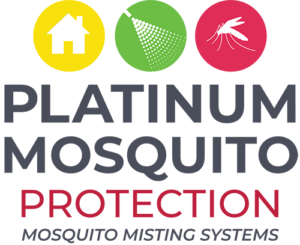
What everyone needs to know to stay safe
Mosquitos aren’t just a nuisance; they can be dangerous. This is why it is always wise to know what the little buggers are up to and how you can best protect yourself from them. Now that we’re in the heart of summer, we thought it would a good idea to go over some mosquito basics, discuss the latest news, and also provide helpful safety tips.
Which mosquitos are we talking about?
We have to admit that mosquitos often get a bad rap. There are about 3,500 different species, but they always seem to get lumped together. Only around 100 of those species go after blood, and there are really only three main species we have to worry about in the U.S.:
- Culex pipiens – House mosquito
- Aedes albopictus – Asian tiger mosquito
- Aedes aegypti – Yellow fever mosquito
While all three are troublesome, it’s that last one that we in Florida have to most concern ourselves with, as it can spread several diseases.
What diseases do they spread?
As its name implies, the Aedes aegypti mosquito does spread yellow fever. And while this disease hasn’t been a big problem in America, experts think Florida could soon see an outbreak. This mosquito also spreads West Nile Virus, which is something else officials are trying to warn the public about. Although it hasn’t been in the news as much recently, we can’t forget about Zika. And another type of mosquito-borne illness was just discovered in Florida called Keystone virus.
Let’s not forget about our furry friends
Mosquitos need blood to nurture their eggs (only the females bite), and they don’t limit themselves to just people. If an infected mosquito bites a dog or cat, this can lead to potentially deadly heartworms. They can also spread the disease to horses called Eastern equine encephalitis. This is why it’s important to keep your pets safe when they are outside.
How can you avoid becoming a mosquito snack?
As we’ve mentioned before, mosquitos are pretty devious, but that doesn’t mean that bites are inevitable. Wearing the right clothing – like long sleeves and permethrin-treated items – can help. Spraying yourself with insect repellant can be effective for a while as well.
There are also things you can do around your property to keep the pests away. Mosquitos require stagnant water to lay their eggs, so a good first step is to look for any standing water in your yard and dump it. They only need about a tablespoon of water, so be sure to check out every nook and cranny. And if you don’t need any of those things collecting water, it may be time to get rid of them.
Why a misting system offers the best protection
Mosquitos are relentless, and because they rely on blood to breed, they won’t stop trying to get it. And while most of the time a bite just results in an itchy red bump, you can never be sure that the mosquito that bit you wasn’t carrying a virus. The best way to safeguard your home and family is with a mosquito misting system. Not only will it keep mosquitos away, but it also wards off ticks, fleas, and other biting insects. Plus, once it’s set up, it works automatically, so you’ll never have to worry about it.
With the 2018 hurricane season potentially worse than last year’s, now is the time to have your system installed. For a free onsite consultation, contact Platinum Mosquito Protection.
